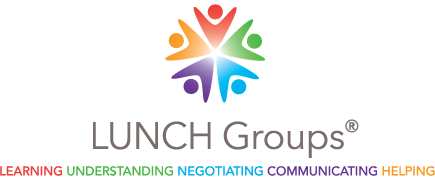Referral Process
All Programs
Some programs seek out children who all have the same diagnosis or characteristics. If the goal is to teach an individual about their diagnosis or specific coping strategies that only affect them, then this makes sense. Our model is different. In working on social skills, we are not trying to have, for example, group members with Asperger’s only socialize with and greet other members with the same disorder. We believe that, by combining individuals with differing problems, children act as appropriate models for one another.
Initial Contact
Typically families will call, email, or fill out an initial contact form from one of our websites. This results in an initial informal telephone consultation, where we discuss the individual's needs as well as some of the program elements. This includes a review of the exclusion criteria. Once it appears that the child and program appear to be a good match, families contact our office to proceed with the assessment process.
Regional Center Funded Families: Once it has been determined that an assessment should proceed, it is the family's responsibility to contact their service coordinator to make the request. After authorization has been received by our office, we contact the family to set up an initial assessment. Families should be aware that, in addition to Regional Center covering the cost of services for their child (if they elect to do so), families are also responsible for a materials fee. This covers a portion of the cost to provide food, offer raffle prizes, bring gin guest presenters, go on community outings, admission fees, and the cost of transportation via chartered touring coach.
Private Pay Families: Families may elect to set up for an initial assessment once it has been determined that their child's needs and the group services appear to be a potential match.
Assessment Process
The assessment has three parts to it which are labeled “Step 1,” “step 2,” and “Step 3.”
Step 1: Family members have an initial telephone conversation, typically lasting about 30 minutes. During this time we will cover information about your child's current level of adaptive and social functioning, including sleep and eating habits; the family situation; current medical issues; and goals for treatment.
Step 2: We have an online social-emotional assessment tool, Rapid Screener®, which we use to help identify relevant areas to increase plus the presence of any behaviors or symptoms that might interfere with an individual's ability to make progress. This is typically filled out by the parent.
Step 3: A telemeeting is held with your child. This typically lasts about 30 minutes, but may vary. We advise that you not tell your child it is an "assessment," but keep it more informal and upbeat. For example, "I've heard about a program that I think might be interesting, and we're going to check it out." If you think your child will be more receptive, you can provide additional details.
The main goal is to provide us with an opportunity to meet informally and assess basic language, attention skills, judgement, and social-emotional functioning.
Group Participation
After the assessment has been completed, a report is generated and sent either directly to the family or to the Regional Center Service Coordinator.
Families are presented with a treatment contract that reviews group policies, confidentiality procedures, and related topics. A signed treatment contract must be completed prior to attending the first group.
The student groups, ages 6-18, offer a parent orientation. Meetings are offered multiple times prior to groups beginning and also the information is presented via webinar and recorded for future reference.
Participating in our programs involves a commitment, both on behalf of the group members and their parents. That means that families will work out potential time or date conflicts in advance, plan to be on time for meetings, and, in the case of student programs, participate regularly in parent meetings.



